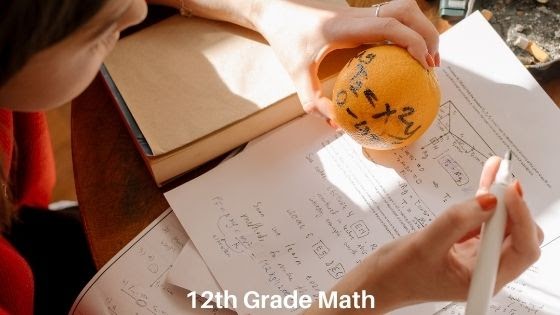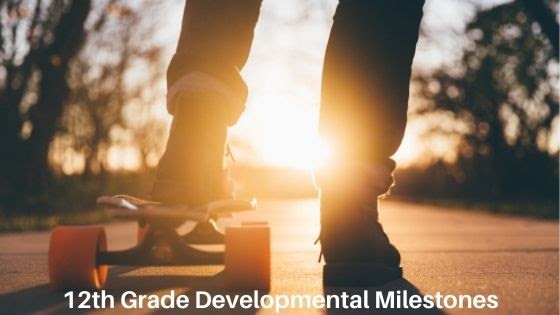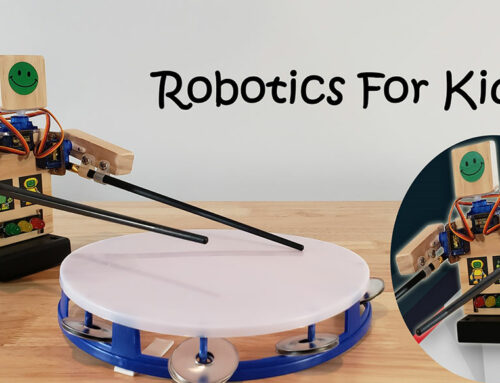It’s here, parents! Wipe away the tears! It’s senior year! Your baby is now 17, and whether you’ve been with us homeschooling since Pre-K or this is your first year, everything you need in order to get started and have a successful year is listed below.
This year, certain changes will be settling down as your teen is finishing up growth spurts and opening the door to adulthood. College and career talks are probably the norm at your house now as well as discussions of politics, current events and more as your young adult seeks recognition of the new-found knowledge they’ve acquired. You’ll see even more independence develop this year as they continue to develop their own beliefs and seek your opinion on important decisions in their own lives and within the family.
You may see your child opening up to new adventures and leaving past activities behind. This is a great opportunity to help them tap into their energy, skills and wisdom allowing them to build some leadership skills and confidence in decision making.
Homeschooling curriculum in the state of Texas must include the five basic subjects of reading, spelling, grammar, mathematics, and good citizenship.
Science, history, and social studies are also included for you.
Not in Texas? Check out state requirements for homeschooling 12th grade in your state.
Suggested School Supplies for 12th Grade

- Pencils
- Pencil sharpener
- Eraser
- Pens
- Lined paper, spiral notebooks, and/or composition notebooks
- Index cards
- Binders
- Folders
- Colored pencils
- Highlighters
- White board
- Dry erase markers
- Ruler
- Scissors
- Stapler
- Glue sticks
- White glue
- Tape
- Bookmarks
- Globe
- Wall maps of the world and the United States
- Library card
- 3-hole punch
- Dictionary
- Thesaurus
- Student planner
- Expandable folder with dividers
- Graphing calculator (if needed)
- USB drive (if needed)
- Computer supplies (as needed; paper, ink cartridges)
12th Grade Milestones by Subject
Language Arts for 12th Grade

From the TEA.
- Focuses on listening, speaking, reading, writing and thinking
- Able to give a presentation using informal, formal and technical language effectively
- Presentations meet the needs of audience, purpose and occasion
- Uses pauses for effect, volume, enunciation, purposeful gestures, eye contact, and conventions of language to communicate effectively in a formal presentation
- Participates collaboratively, building on the ideas of others, contributing relevant information, developing a plan for consensus building, and setting ground rules for decision making
- Uses print or digital resources such as glossaries or technical dictionaries to clarify the multiple meanings of advanced vocabulary words
- Distinguish among denotative, connotative and figurative meanings of words by using context clues
- Reads and analyzes British literature across literary periods
- Able to paraphrase and summarize texts in ways that maintain meaning and logical order
- Understands the explicit and implicit meaning of texts
- Understands the relationships among thematic development, characterization, point of view, significance of setting and plot in a variety of literary texts
- Understands and is able to explain how a character’s behaviors and underlying motivations contribute to moral dilemmas that influence the plot and theme
- Understands how the historical, social and economic context of setting(s) influences the plot, characterization and theme.
- Analyzes relationships among characteristics of poetry, including stanzas, line breaks, speaker and sound devices in poems across a variety of poetic forms
- Understands and is able to analyze how the relationships among dramatic elements advance the plot, theme and structure
- Reads grade-appropriate texts independently and is able to self-select texts and read independently for a sustained period of time
- Uses metacognitive skills to increase effective study strategies
- Able to plan a piece of writing appropriate for various purposes and audiences by generating ideas through a range of strategies such as brainstorming, journaling, reading, or discussing
- Develops drafts into a focused, structured, and coherent piece of writing
- Revises drafts to improve clarity, development, organization, style, diction and sentence effectiveness, including use of parallel constructions and placement of phrases and dependent clauses
- Able to edit drafts using standard English conventions
- Incorporates a variety of sentence structures and avoids unintentional splices, run-ons and fragments
- Uses consistent, appropriate verb tense including active and passive voice
- Uses correct capitalization and punctuation including commas, semicolons, colons, dashes and parentheses to set off phrases and clauses
- Avoids spelling mistakes
- Composes informational texts such as explanatory essays, reports and personal essays
- Able to compose correspondence in either a professional or friendly structure
- Able to use source materials ethically to avoid plagiarism
Writing Skills Checklist for 12th Grade

- Writes legibly in print and cursive
- Writes to express feelings, tell stories, and summarize information
- Able to follow complex written directions and write effective directions
- Understands how to use reference materials, take notes and prepare written reports
- Uses grammar and punctuation correctly and effectively in writing
- Can self and peer edit written works
- Able to write based on the needs of the audience or assignment by changing sentence structure, vocabulary and voice
- Uses correct capitalization, punctuation (including commas, semicolons, colons and dashes) and spelling with ease
- Uses increased planning strategies to search for and combine information from multiple sources to create longer and more complex works
- Understands the use of citations and footnotes
- Creates original works using effective written communication skills
- Understands what plagiarism is; why and how to avoid plagiarism
Foreign Language for 12th Grade

Learning a foreign language not only makes you globally literate but it also makes you a better partner in our world community. Plus, foreign language study increases cognitive development, creativity and divergent thinking.
And, with online resources and phone apps, studying a foreign language is now easier than ever. Here are a few links we’ve discovered to get you started to discover the languages and cultures that make up our world.
- Free Spanish-learning Resources Online: A comprehensive resource list brought to you by A2Z Homeschool.
- Duolingo: The free app offers you the option to learn for free with advertisements or have an ad-free, paid subscription with progress tracking. Please note that non-traditional families and other more touchy subjects are sometimes featured in their lessons as well as in their stories.
- Babble Offers 14 different languages and a discount to students.
- Rosetta Stone: Their patented TruAccent speech-recognition engine helps you fine-tune your pronunciation from the very first lesson. Rosetta Stone Homeschool offers a 7-day free trial to get your family started on the path to foreign language learning.
- ASLU on YouTube with Bill Vicars: For ASL, this is a great visual resource for your active learner, while ASLPro is a free resource with dictionaries, tutorial videos and more. To use it on your phone, use the url www.aslpro.cc.
- SignLanguage101.com: Another great ASL resource.
To further your studies, numerous books on deaf culture are also available. If you purchase these through AmazonSmile, please choose Texas Home School Coalition as your charity of choice!
History and Social Studies for 12th Grade
From the TEA.
- Understands how constitutional government, as developed in America and expressed in the Declaration of Independence, the Articles of Confederation, and the U.S. Constitution, has been influenced by ideas, people and historical documents
- Able to identify major intellectual, philosophical, political and religious traditions that informed the American founding, including Judeo-Christian (especially biblical law), English common law and constitutionalism, Enlightenment and republicanism, as they address issues of liberty, rights and responsibilities of individuals
- Understands the roles played by individuals, political parties, interest groups and the media in the U.S. political system, past and present and how they affect public policy
- Understands how geography can influence U.S. political districts and policies, population shifts and political boundaries affect voting patterns
- Able to explain how political districts are crafted and how they are affected by Supreme Court decisions such as Baker v. Carr
- Understands the roles played by local, state and national governments in both the public and private sectors of the U.S. free enterprise system
- Able to identify and explain the role of major political figures throughout our country’s history
- Understands the American beliefs and principles reflected in the U.S. Constitution, why they are significant, and how our federal government serves the purposes set forth in the Preamble to the U.S. Constitution
- Able to explain constitutional provisions for limiting the role of government, including republicanism, checks and balances, federalism, separation of powers, popular sovereignty and individual rights
- Familiar with the procedures by which the U.S. Constitution can be changed and amendment process
- Able to identify how the Declaration of Independence and the U.S. Constitution continue to shape American beliefs and principles in the United States today
- Familiar with the purpose selected independent executive agencies, including the National Aeronautics and Space Administration (NASA), and regulatory commissions, including the Environmental Protection Agency (EPA), Occupational Safety and Health Administration (OSHA), Food and Drug Administration (FDA), and Federal Communications Commission (FCC)
- Understands the concept of federalism
- Understands the process of electing our president as well as the workings of the Electoral College
- Able to explain the functions of political parties and their role in the electoral process at local, state, and national levels
- Knows the differences between the U.S. constitutional republic, monarchy, a classical republic, authoritarian, socialist, direct democracy, theocracy, tribal and other republics
- Understands the rights that are protected and secured by the U.S. Constitution and Bill of Rights
- Explains the roles of limited government and the rule of law in the protection of individual rights
- Able to identify and define the unalienable rights
- Explains the reasons our Founding Fathers worked so hard to protect religious freedom in America by saying that “Congress shall make no law respecting an establishment of religion, or prohibiting the free exercise thereof,” and compare this to the concept of separation of church and state
- Familiar with U.S. Supreme Court interpretations of rights guaranteed by the U.S. Constitution in selected cases, including Engel v. Vitale, Schenck v. United States, Texas v. Johnson, Miranda v. Arizona, Gideon v. Wainwright, Mapp v. Ohio, and Roe v. Wade
- Familiar with the Civil Rights Act of 1964, Hernandez v. Texas, Grutter v. Bollinger. the Servicemen’s Readjustment Act of 1944 (GI Bill of Rights), the Immigration and Nationality Act of 1965, the Immigration Reform and Control Act of 1986, affirmative action and racial integration, and the changes they brought to American culture
- Uses social studies terminology correctly
- Creates appropriate graphics such as maps, diagrams, tables and graphs to communicate geographic features, distributions and relationships
- Able to plan, organize and complete a research project that involves asking geographic questions; acquiring, organizing and analyzing information; and is able to communicate the results
Math Checklist for 12th Grade

From the TEA.
- Applies precalculus math skills to daily life and understands how they apply to business, society and everyday situations
- Fluently adds, subtracts, multiplies and divides rational numbers
- Demonstrates mathematical understanding of ideas by using precise mathematical language verbally or in writing
- Uses knowledge previously learned as a foundation to gain new understanding of mathematical concepts
- Able to graph functions, including exponential, logarithmic, sine, cosine, rational, polynomial and power functions and their transformations, including af(x), f(x) + d, f(x – c), f(bx) for specific values of a, b, c and d, in mathematical and real-world problems
- Able to determine and analyze the key features of exponential, logarithmic, rational, polynomial, power, trigonometric, inverse trigonometric and piecewise defined functions, including step functions such as domain, range, symmetry, relative maximum, relative minimum, zeros, asymptotes and intervals over which the function is increasing or decreasing
- Analyzes and describes end behavior of functions, including exponential, logarithmic, rational, polynomial and power functions, using infinity notation to communicate this characteristic in mathematical and real-world problems
- Understands how to determine various types of discontinuities in the interval (-∞, ∞) as they relate to functions and explore the limitations of the graphing calculator as it relates to the behavior of the function around discontinuities
- Uses the process standards in mathematics to model and make connections between algebraic and geometric relations
- Able to determine the value of trigonometric ratios of angles and solve problems involving trigonometric ratios in mathematical and real-world problems
- Able to use skills and knowledge of trigonometry in mathematical and real-world problems, including the Law of Sines and Law of Cosines
- Understands vector and can apply vector addition and multiplication of a vector by a scalar in mathematical and real-world problems
- Uses algebraic reasoning to process standards in mathematics to evaluate expressions, describe patterns, formulate models, and solve equations and inequalities using properties, procedures, or algorithms, and can represent arithmetic series and geometric series using sigma notation
- Able to calculate the nth term of a geometric series, the nth partial sum of a geometric series, and sum of an infinite geometric series when it exists
- Understands how to apply the Binomial Theorem for the expansion of (a+b)n in powers of a and b for a positive integer n, where a and b are any numbers
- Able to solve polynomial equations and inequalities
- Uses trigonometric identities such as reciprocal, quotient, Pythagorean, cofunctions, even/odd and sum and difference identities for cosine and sine to simplify trigonometric expressions
- Able to produce and solve trigonometric equations in mathematical and real-world problems
- Uses select tools including real objects, manipulatives, paper and pencil, technology, mental math, estimation and number sense to solve problems
- Able to use graphs, maps or other representations to learn and convey information
Science Experiments and Skills for 12th Grade
From the TEA.
- Understands how Earth-based and space-based astronomical observations reveal differing theories about the structure, scale, composition, origin and history of the universe
- Able to explain how the Sun and other stars transform matter into energy through nuclear fusion and knows how a supernova can lead to the formation of successive generation stars and planets
- Understands the characteristics of comets, asteroids, and meteoroids and their positions in the solar system, including the orbital regions of the terrestrial planets, the asteroid belt, gas giants, Kuiper Belt and Oort Cloud
- Compares terrestrial planets to gas-giant planets in the solar system, including structure, composition, size, density, orbit, surface features, tectonic activity, temperature and suitability for life
- Able to compare extrasolar planets with planets in our solar system and is able to describe how these planets are detected
- Knows how Earth’s atmospheres, hydrosphere and geosphere formed and changed through time
- Familiar with relative dating methods using original horizontality, rock superposition, lateral continuity, cross-cutting relationships, unconformities, index fossils and biozones based on fossil succession to determine chronological order
- Understands the solar nebular accretionary disk model
- Analyzes and evaluates a variety of fossil types such as transitional fossils, proposed transitional fossils, fossil lineages and significant fossil deposits
- Understands how sedimentation, fossilization and speciation affect the degree of completeness of the fossil record
- Familiar with the differing scientific and religious theories of evolution and creation
- Conducts laboratory and field investigations, uses scientific practices during investigations, and makes informed decisions using critical thinking and scientific problem solving
- Conducts laboratory and field investigations using safe, environmentally appropriate and ethical practices
- Understands appropriate first aid responses to accidents that could occur in the field such as insect stings, animal bites, overheating, sprains and breaks
- Demonstrates safe practices during laboratory and field investigations including the appropriate use of safety showers, eyewash fountains, safety goggles or chemical splash goggles and fire extinguishers
- Able to collect data and make measurements with accuracy and precision while using the proper tools and equipment to do so
5 Science Experiments for 12th Grade
What better way to enhance understanding of our natural world than to incorporate science into your 12th grade school day? Here are five fun and easy experiments that you can do at home.
- Make Sparks Fly – Making Fire
- How does Earth’s “wobble” affect us?
- Create the Famous Iodine Clock Reaction
- NASA’s STEM Resources for 12th Graders
- Build your own world with Disney Imagineers.
Good Citizenship Lesson Plan 12th Grade
Being a good citizen not only means understanding your right to vote and the privileges of citizenship, but also respect for our planet, good stewardship and understanding the world around us.
Below are ideas to assist you and your teen in understanding the relationship among individual rights, responsibilities, duties and freedoms in societies with representative governments and why civic participation is so important.
If you are in need of resources and lesson plans to fulfill this requirement, consider joining THSC. We offer our “Lone Star Study” guide as a free download for our members.
Here are a few ideas:
- Become involved in events and initiatives such as Capitol Days sponsored by THSC.
- Learn about the electoral process in local, state and national elections.
- Register to vote and vote! Better yet, take your child with you to see the voting process. Children under the age of 18 are allowed to go with you and even go inside the booth with you in every state in the United States. In Texas, one child under the age of 18 is allowed to accompany a parent. Senior year means your child could be turning 18 before Election Day. Get out and vote together!
- Compare the principles and concepts of the Texas Constitution to the U.S. Constitution, including the Texas and U.S. Bill of Rights. How are they the same? How are they different?
- What does the Bill of Rights promise us as citizens of the United States? Discover as a family why each amendment exists and the people and groups who were instrumental in their creation.
- Discuss the responsibilities, duties and obligations of citizenship as a family. These include being well informed about civic affairs, serving in the military, voting, serving on a jury, observing the laws, paying taxes, serving the public good and the power behind your vote.
- Discover the meaning and history of the major historical documents that defined our country.
- Write a letter to your elected officials in support of or against legislation affecting lives within your community. Start a letter writing campaign to get others involved!
- Attend city council meetings as a family and discover the inner workings of your town.
- Volunteer at a food pantry, animal shelter or other organization. Many places allow youths to participate with a parent, or after a certain age, on their own.
- Learn about local and national non-profit organizations and how each serves your community. Do they have volunteer or one-day service opportunities? These one-day events are a great way for your family to jump in and serve where needed.
- Attend rallies of causes you believe in as a family.
- How is your town significant in Texas history? Find out! Online research, a visit to your local library or a chat with a local historian will uncover the rich history of the place you call home.
- Discover how each of us affects the environment from how much water we use to how much trash we produce. Then, discuss and implement ways you as a family can lessen your impact.
- Learn about recycling in your area. What items are recyclable and where and how do you recycle them? Discuss as a family why recycling is so important.
- Keep our state clean by picking up litter everywhere you go.
- Did a member of your family participate in World War I, II, or other global military conflict? Where were you on September 11, 2001? Giving your teen a special assignment of chatting with someone who saw a major historical event firsthand opens her eyes to the realities and significance of our history from a whole new perspective.
17-Year-Old Developmental Milestones

All children develop at different rates. However, certain skills are easily identified by the age of seventeen. If you have concerns about your child’s development after reviewing this list, please discuss those with your healthcare provider.
17-Year-Old Gross Motor Skills
Source: Michigan State University.
- Females have typically reached maturity, are at their full height and have completed puberty
- Males continue to grow until age 18; voices will deepen and they will continue to gain muscle mass easily
- Reaction times improves, contributing to motor skill development
- Shows increased awareness of physical skills in all areas and is able to coordinate movements like dribbling and shooting a basketball, dance or martial arts with better coordination
- Overall increase in large muscle development, strength and hand-eye coordination continue
17-Year-Old Fine Motor Skills
- Fine motor skills typically stop improving by age 15, however activities such as folding clothes, typing, writing and drawing continue to increase skills
- Fine motor skills used in team sports continue to increase
- Hobbies and activities further increase fine motor skill development such as making jewelry, playing an instrument, playing video games, etc.
Language Development and Comprehension for 12th Grade
- Shows increased independence and desire for respect from peers and parents
- Enjoys demonstrating acquired knowledge
- Wants to be involved in decision making
- Often prefer to communicate via text message and social media
- May find blogging or writing helpful to express themselves
- Has a deeper capacity for caring and sharing
- Shows an interest in developing more intimate relationships
- Vocabulary continues to increase as diversity in reading increases
- Uses complex sentences and different types of sentences to express ideas clearly
- Conflict with parents tends to decrease
- Contributes meaningfully and understands social etiquette in conversations
- Able to shift conversations based on increased awareness of the listener’s needs and engage in meaningful and respectful discourse.
Recommended Reading List for 12th Graders

From Bookscrolling.com.
Find these books at your local library or find them at any bookstore. If you shop on Amazon, please visit Amazon Smile and choose Texas Home School Coalition as your charity of choice!
We also recommend checking with a site such as Redeemed Reader or Plugged-In as to the appropriateness of any particular book for your child and their personal maturity level.
Another wonderful place for book recommendations is The Read-Aloud Revival, which features booklists and reviews for all kinds of books and reading levels.
- The Hobbit and The Lord of the Rings trilogy by J. R. R. Tolkien. Drawing from his extensive knowledge of philology, colorful myth and folklore from a vast array of cultures, these books are the saga of a group of sometimes reluctant heroes who set forth to save their world from malevolent forces. They teach students how to do what is right regardless of the odds against them and to fight evil, in whatever form it presents itself.
- The Screwtape Letters by C.S. Lewis. This is a classic masterpiece of religious satire that entertains readers with its sly and ironic portrayal of human life and foibles from the vantage point of Screwtape, a highly placed assistant to “Our Father Below.” At once wildly comic, deadly serious, and strikingly original, C.S. Lewis’s The Screwtape Letters is the most engaging account of temptation—and triumph over it—ever written.
- C.S. Lewis’s Space Trilogy. Called to join the universal battle of good vs. evil, Dr. Elwin Ransom, a renowned scholar, fights demonic forces with the help of heavenly messengers. Follow his out-of-this-world adventures in Out of the Silent Planet, Perelandra, and That Hideous Strength, written by intellectual giant C.S. Lewis.
- Pride and Prejudice by Jane Austen. Since 1813, Pride and Prejudice has continuously appeared on the lists of “most-loved books” among literary scholars and the reading public. With memorable characters including Elizabeth Bennet and the famous Mr. Darcy, this must-read shows that love comes in the most unlikely of places, and that one should not judge upon first impressions. The novel also unveils the manners, education, marriage and prestige of money during the Regency era in Great Britain’s history.
- Ender’s Game by Orson Scott Card. Set in Earth’s future, where humankind has survived two attacks by an insectoid alien species nicknamed “buggers.“ In anticipation of a third invasion, children compete in increasingly difficult games in order to fight in the inevitable war. This book was recognized as “best novel” by the 1985 Nebula Award and the 1986 Hugo Award in the genres of science fiction and fantasy.
- The Book Thief by Markus Suzac tells the story of Liesel Meminger. As a foster child in 1939 Munich, Liesel’s life revolves around bombings, Nazi threats and parades of Jewish prisoners. But, one thing in her life remains constant–books. And, she steals them whenever she gets the chance. As the war comes closer, her stolen books are what bring solace to not only Liesel, but her neighbors and the Jewish man hiding in her basement as well. As told by the narrator, Death.
- Fahrenheit 451 by Ray Bradbury. Sixty years after its original publication, Ray Bradbury’s internationally acclaimed novel Fahrenheit 451 stands as a classic of world literature set in a bleak, dystopian future. Today its message has grown more relevant than ever before. Guy Montag becomes disillusioned as a “firefighter” whose sole job is burning down houses of people who hide outlawed books. What will unfold when Guy steals a book from one of the houses he was sent to “censor?”
- 1984 by George Orwell. Orwell’s classic dystopian fiction warns us of our future, and deals with issues that speak to multiple dangers faced by many nations today. Winston Smith is a member of ‘the party’ and subject to constant surveillance by the eyes of Big Brother, the ruler of the society. ‘Newspeak’ is designed to eradicate all political speech, ‘Thoughtcrimes’ are categorized as any thoughts of resistance or rebellion against any aspect of society, and the threat of despatch to ‘Room 101’ is a looming warning to all. Orwell explores the mechanics of totalitarianism revealing how control over the mass media allows the state to control all aspects of life, both the past and the future.
Magazines offer a great way for your teen to learn core subjects and relationship skills. Here are a few great options:
- WORLDTeen
- Answers Magazine
- National Geographic Kids (ages six and up)
- Sports Illustrated Kids
- Boys’ Life (ages six to 18)
10 Awesome Homeschool Field Trip Ideas for 12th Graders

Don’t feel you have to leave your town, your neighborhood or even your own home to enjoy a fun filled field trip! Be creative! A walk around your backyard or a search on the Internet can be an educational experience.
- Government: THSC Capitol Days are one-day, hands-on events that allow homeschooling families to fully participate in the state legislative process. These events give the opportunity to defend the rights of homeschool families in Texas, meet representatives and staff and actually help pass a law. A free grade-specific tour is available at our Texas state capitol, which includes, history, architecture and the legislative process, and a scavenger hunt for high school students.
- First Responder Appreciation: Police, fire and EMS stations are located throughout most cities. Locate the one closest to your house and give them a call! Many are ready for tours, and if one isn’t available, gather up some goodies and some thank you cards as a gift to drop off to show them how much they are appreciated. Our frontline workers need our support every day.
- Job Fair: Graduation is just around the corner! College and career talks are probably popular at your house right now. Create your own “job fair” by reaching out to people you know or to experts in your community. Television reporters, college professors, nurses and more are available to show you the ins and outs of their jobs and help guide a possible career choice. Visit a farm, watch a lawyer in court, chat with a pastor or priest or cook alongside a chef. Reach out! Professionals in every background were once where you are, and most are eager to assist you.
- Historical Sites: Homeschooling keeps you busy, but one way to enhance your teen’s learning experience is by visiting the very places you are studying each day. From the San Jacinto Battleground State Historic Site in La Porte to the Alamo in San Antonio, numerous historical monuments, museums, battlegrounds and sites are ready for you to see across this great state.
- Museums: Further your science curriculum with a visit to the Space Center in Houston. Filled with 400 space artifacts including the largest collections of spacesuits and Moon rocks on public display in the world, the center is also the Official Visitor Center of NASA Johnson Space Center and a Smithsonian Affiliate.
- Sports: It is no secret we like our sports in Texas! From bull riding and bowling, to baseball and all-around sports history, Texas has a venue to enjoy every sport imaginable with a dash of history to add to it. In fact, major league teams across our state offer tours of facilities including a behind the scenes look into the lives of the players. AT&T Stadium in Arlington, Home of the Dallas Cowboys, offers not only VIP, educational and self-guided tours, but also one including their world-renowned, contemporary art collection showcased throughout the stadium.
- Libraries: Teen groups, anime meetups, coding camps and more are held throughout the year at local libraries throughout Texas. Check with your local library and see what activities are available in person or online and get the scoop on the newest must-read to discover.
- Theater/Music/Art: National Public Radio (NPR) is offering an updated multi-genre list of daily concerts and performances from all over the world. You can see the most current list here. Many theatrical performances and events are now available by Zoom or YouTube such as those at The Actors Fund. Does your local community offer free concerts and performances? Grab a blanket or your favorite travel chair and enjoy the show.
- Get Outside: Our Texas state parks offer special activities throughout the year including hiking tours, educational programs, scavenger hunts and more. An overnight camping trip gives your family a great excuse to breathe some fresh air and be outside, not to mention practice that “Make Sparks Fly” science experiment we mentioned above! Thirty miles of hiking, biking and equestrian trails await you at Palo Duro Canyon. Known as “Texas’ Grand Canyon,” this state park is also home to “TEXAS Outdoor Musical,” a family-friendly show that shares the stories and struggles of early settlers with singing, dancing, fireworks and lots of Texas humor.
- Living History: Across our state, groups and organizations work diligently to ensure historical accuracy and diverse programming to keep the craftsmanship, allure and heirloom skills of our past available for your family to learn today. The Texas Historical Commission keeps a running list of special events and activities taking place across our state for you and your family to enjoy.
We believe homeschooling is one of the best models for educating children, which is why we support families with encouragement and practical resources like you found in this article.
We hope you found this helpful in preparing to homeschool 12th grade. Have fun this year!
Won’t you join us in making these resources available to homeschooling families by becoming a member?



